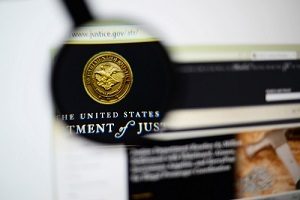Top Takeaways from Former DOJ Civil Chief Jody Hunt on the Current State of False Claims Act Enforcement

Law360 recently interviewed former DOJ Civil Chief Jody Hunt on what he sees as the key issues surrounding False Claims Act enforcement these days. Here are the top takeaways:
-
- COVID-relief fraud will be a DOJ priority. No surprise there given the billions of dollars the federal government is pouring into the economy to alleviate some of the financial strain the pandemic is wreaking on healthcare providers and small businesses. But how much of a priority remains to be seen. While there have been many CARES Act related enforcement actions to date, they have largely been against individuals and small offenders. There have been few to none against the largest recipients of relief. As Hunt conceded, “it’s hard to predict whether [this priority is] going to translate into a greater percentage of enforcement actions, because it all depends on what the government finds in its investigations.” A definite invitation for whistleblowers to be on high alert in this area of False Claims Act enforcement.
- DOJ will continue to focus on substandard nursing home care. The nursing home industry was a priority for DOJ even before the pandemic. Given the disproportionate hit nursing homes have taken from COVID-19, this enforcement priority has only gotten stronger. Apparently, this does not mean going after nursing homes only because of high virus-related casualties. Instead, it means zeroing in on nursing homes that have placed their residents in harm’s way by flouting federal guidelines or because of a history of problems made worse by the crisis. According to Hunt, “it’s really hard to see that DOJ would come down hard on nursing homes that did their best to follow guidelines and apply appropriate medical standards.”
- Health care companies should ensure their electronic health records are accurate and not tainted by illicit motive. On this issue, Hunt was brief but to the point on the growing opportunities for fraud in this area: “It would behoove general counsels to ensure they’re using appropriate software and generating accurate records. They should invest in regular and periodic audits to ensure that the software they’re using isn’t tainted by any improper incentives.”
- DOJ will be looking out for fraud in the Medicare Advantage (Part C) Program. Hunt pointed out that in this area of Medicare reimbursement, “there can be easy manipulation of payment codes, and there’s a lot of room for fraud.” He warned that “if you turn a blind eye to errors that are causing a greater payout from the government, you’re going to find yourself in trouble.” And that’s exactly what has happened to several health care providers and insurers that have found themselves in the crosshairs of DOJ investigations and lawsuits challenging their “risk adjustment” submissions under the Medicare Advantage Program and seeking millions of dollars in overcharge damages.
- DOJ will look very favorably upon internal compliance programs. Hunt stressed the importance of strong internal compliance programs, not just to reduce any potential damages if a company engages in wrongdoing but to argue against liability altogether. “If a company has a robust compliance program, it also gives them an opportunity to argue that they shouldn’t be liable, because their robust compliance steps demonstrate that they had no intent to commit fraud.” And of course, any real compliance program must be accompanied by highly promoted and protected channels for whistleblowers to report misconduct and a corporate culture that supports and encourages whistleblowers to do so.
- Pharmaceutical companies should avoid using charitable foundations as a means to disguise kickbacks. The use of third-party foundations to cover patient co-pays is an area DOJ has gone after heavily over the past few years, recovering roughly a billion dollars in damages for this kind of fraud. Hunt says that focus will continue so drug companies are prevented from improperly steering patients to their products, which ultimately leads to higher prices for Medicare.
- DOJ will continue to exercise its authority under the so-called Granston memo to dismiss whistleblower cases. Hunt expressed his “strong views” about this continuing debate on whether DOJ has overstepped its authority to weed out what it considers meritless qui tam He does not think so. He recognized DOJ has dismissed more cases under the False Claims Act in last two years since DOJ issued the memo than in the 30 years combined before that. But he thinks that is because DOJ was not exercising its dismissal authority as much as it should have. He sees “compelling reasons for DOJ to continue to make judicious use of its dismissal authority” because it “protects limited government resources and prevents bad case law, and that not only benefits the government, it also benefits relators, because a lot of them have meritorious allegations.”
Some valuable insights from someone who until very recently was at the center of DOJ’s fraud enforcement regime. While many of them will likely hold firm regardless of any change in DOJ control come November, it remains to be seen what precise direction DOJ will take in the coming years regarding whistleblowers and False Claims Act enforcement.
Read More:
- COVID-19 Fraud
- False Claims Act
- Fraud Related to Electronic Health Records
- Home Health and Hospice
- Increased Federal Funds, Incentives, and Requirements for Nursing Homes Brings Worrisome Opportunities for Fraud
- Risk Adjustment Fraud in Healthcare
- Windfall to Health Insurers Due to COVID-19 Is Not Yet Resulting in Resolution of FCA Risk Adjustment Cases
- Our Whistleblower Team
- Contact Us
Tagged in: Anti-Kickback and Stark, COVID-19, Electronic Health Records, FCA Federal, Government Loan Programs, Home Health and Hospice, Importance of Whistleblowers, Risk Adjustment Fraud, Whistleblower Eligibility,